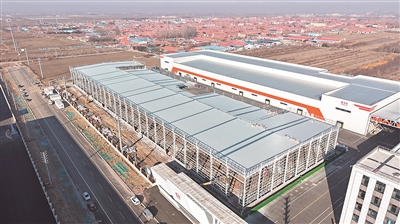Qingdao Ranks 16th Globally in Marine City Competitiveness
发布时间:2025-10-15 信息来源:Qingdao Government
Qingdao has been ranked 16th among 60 global marine cities, with the highest number of ocean-related research papers worldwide, according to a competitiveness index report of global marine cities released recently.
The report identifies four tiers of global marine city competitiveness. London, Singapore, New York, Shanghai, Tokyo, Hong Kong, Sydney, Hamburg, Oslo, and Rotterdam form the top tier, serving as global benchmarks for marine development. Shenzhen, Houston, Copenhagen, Guangzhou, Vancouver, Qingdao, Stockholm, Los Angeles, Taipei, and Athens make up the second tier, driven by strengths in technological innovation and economic vitality.
The report notes that three distinct global marine economic zones have taken shape: a Europe-based marine economic zone, represented by London, Hamburg, and Oslo; a North America-based marine economic zone, represented by New York, Houston, and Vancouver; and an Asia-Pacific-based marine economic zone, represented by Singapore, Shanghai, Tokyo, and Hong Kong. Up to 3 corresponding domestic marine economic zones have emerged within China's national strategy to strengthen its status as a maritime power—in the north, east, and south—led respectively by Qingdao, Shanghai, and Shenzhen as the core cities driving their regions' development.
The report observes a growing trend of specialization among global marine cities, each developing distinct roles and strengths with 4 clear development models emerging in China: Technology-driven marine cities, represented by Qingdao, whose core strengths lie in marine-related research output and the number of leading marine scholars and academicians; Shipping hub marine cities, represented by Shanghai, defined by cargo throughput and network connectivity; Eco-demonstration marine cities, represented by Xiamen, recognized for mangrove restoration and blue carbon trading; and cultural and industrial integration marine cities, represented by Ningbo–Zhoushan, are distinguished by their strengths in hosting the China Fisheries & Seafood Expo, promoting island tourism, providing bonded fuel bunkering services, and advancing futures–spot market linkage.
Qingdao specifically stands out for its strength in marine-related research and academic leadership. The Web of Science database, which indexes leading peer-reviewed journals across disciplines including natural sciences, engineering, biomedicine, social sciences, arts, and humanities, shows that among 60 marine cities worldwide, Qingdao ranked 1st in 2024 with 2,202 marine-related publications—nearly one-tenth of the global total of 23,333 papers. Qingdao also hosts nearly one-third of China's marine-related academicians from the Chinese Academy of Sciences and the Chinese Academy of Engineering, the highest concentration in the country.
The report was jointly compiled by the Institute for Sustainable Development and Ocean Economy of the China Development Institute (Shenzhen) and the Guangdong Academy of Greater Bay Area Studies, evaluating 60 marine cities worldwide across 5 dimensions—economic vitality, technological innovation, maritime services, international influence, and urban governance—to reveal new trends in global marine city competitiveness amid profound changes in ocean governance. Looking ahead, the report forecasts that a technology-driven efficiency revolution and a green, low-carbon transition will dominate the development of marine cities between 2025 and 2030, with emerging industries such as offshore data centers, marine artificial intelligence, green fuel bunkering, and the blue carbon economy expected to expand rapidly to support marine cities in securing a stronger position in global competition.



